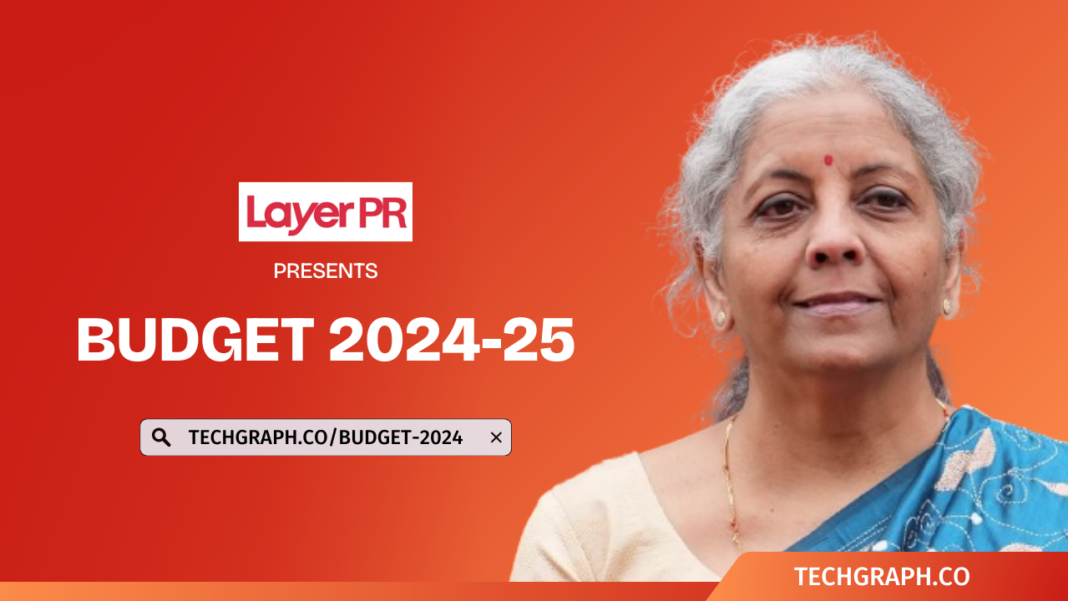As India eagerly awaits the Union Budget announcement, stakeholders in the education sector are expressing a strong desire for an increase in investment to advance educator upskilling and promote cutting-edge ed-tech solutions.
The sector further hopes for tax breaks and grants to spur the growth of innovative educational technologies and support start-ups focused on the needs of the Indian diaspora.
Read the expectations from the educational and upskilling sector in detail:
Dinesh Kumar Poobalan, CEO & CTO, Greatify
We observed a promising outlook for the education and edtech sectors during the interim budget. The government’s commitment to upskilling millions of youths through the Skill India Mission and establishing higher learning institutions is a commendable move. As the Union Budget is approaching, we anticipate increased investment in upskilling educators with the latest technologies to ensure the delivery of high-quality education.
Additionally, there is a significant need for substantial budget allocations towards digital infrastructure. This includes equipping schools and institutes with emerging technologies like AI and creating incentives for edtech companies. The government should increase funding to bridge the digital divide and make quality education accessible to all.
Emerging technologies play a crucial role in transforming education, and the government needs to enhance the use of AI tools to encourage AI-based learning. These initiatives are vital to achieving the ambitious targets of the National Education Policy (NEP), which aims to increase the Gross Enrolment Ratio (GER) from 26.3% to 50% by 2035. By harnessing the combined potential of technology and skill development, we foresee a positive outlook for edtech companies in the upcoming budget.”
Rishab Kapur, Co-founder & Vice President of Strategic Alliances, Edverse
It is undisputed that technology plays a pivotal role in the education sector. Policies supported by proper financial investments can greatly improve accessibility to the best resources for deserving learners. Therefore, the hope from the budget is that the government prioritizes investment in digital infrastructure, allowing players in the segment to bridge the gap in learning opportunities.
Furthermore, by providing tax incentives and grants, the government can foster the development of innovative educational technologies, encouraging ed-tech start-ups to curate tech targeted to the needs of the Indian diaspora. We also hope to see funds allocated towards the training and development of teachers to utilize the available technology to the best of their abilities.
Akshay Munjal, Founder and CEO, Hero Vired
In the past decade, the Government has embarked on a transformative journey, introducing major reforms and initiatives in education and skill development. As we aspire to realize our vision of a $5 trillion economy, it is crucial that education, health, and skill development remain at the forefront of our national agenda in the upcoming budget. Developing a strong tech infrastructure is critical for fueling growth and job creation in high-demand sectors like AI, cybersecurity, and big data.
Our policies must equip our workforce with essential digital skills and technologies, enabling India to spearhead global advancements. By embracing research-driven skill development tailored to job creation, we can elevate the effectiveness of our education sector. Implementing a regulatory framework for EdTech should also be evaluated as it can bring organization, transparency, and efficiency to the sector, benefiting all stakeholders involved. By adopting these measures, we can strengthen our education system holistically and position India as a global leader in digital skills, knowledge, and technological innovation.
Muneer Ahmad, Vice President, Sales and Marketing, ViewSonic India
Looking ahead to this year’s budget, ViewSonic is optimistic about the opportunities it presents for the EdTech sector. We are committed to leveraging these opportunities to create an even better education environment in India. Thus, we always focus on fulfilling our goal of providing services, products, and superior interactive displays that are country-wide and relevant to educators and students.
In our opinion, further investment in education technology will not only help educators but also raise equality in access to high-quality education in the country. We have strategically increased our focus and investments in developing state-of-the-art interactive displays and digital learning. Our ongoing investments in R&D in India underscore our dedication to innovation and leadership in this space. As we navigate the complexities of modern education, we urge the central government to prioritize enhancing access to quality education through sustainable investment in EdTech infrastructure. We look forward to the budget’s potential to catalyze significant growth and reinforce India’s global standing in EdTech.
Akshal Agarwal, Co-founder at NatureNurture
India’s historic spending on education over the last 10 years has hovered around 3% of GDP. While the government’s education policy calls for a 6% of GDP on education expenditure, I believe the GDP spent on education does not give an accurate picture of India’s true education budget.
Most of the government’s education budget is spent on building school infrastructure, as opposed to improving the teaching and learning process. A tall building is a visible checklist for any constituency as opposed to systemic improvement in the classroom pedagogy which takes longer than a single government’s term to fructify. Therefore only the education infrastructure gets evaluated to judge educational progress. This approach leaves little incentive for improving the quality of instruction because only what gets measured, gets done.
Investments made in school infrastructure should be part of the infrastructure budget and the education spending should solely focus on improving teacher quality, creating robust audit and assessment methods, implementing technology solutions in the classroom, and on partnerships that benefit the learners in the classroom. The metrics to measure education progress in the country have always been the Gross Enrolment ratio and distance of pucca school from each student’s house. While these factors were a critical first step to developing our education ecosystem, as we achieve majority GER ratios, the success metrics need to be redefined qualitatively. Most developed knowledge economies across the world focus actively on improving the quality of learning outcomes that an average school-going student achieves and a strict demarcation of fund allocation towards quality of teaching, rather than mere quantity, is key to ensuring that our educational institutions remain relevant in the 21st century.
Chitranshu Mahant, CEO & Co-Founder, Primebook
In the upcoming Union Budget 2024-25, we expect to see a focus on student empowerment and the growth of startups. We wish impetus may be given to digital infrastructure in the institutions of learning so every deserving student has access to affordable technology and digital literacy tools. There has to be in-built occupation-based training as part of HEIs, so the academic curriculum is oriented towards the requirements of the industries. It will further equip students with the requisite skills dynamic in nature vis-à-vis the changing job market.
Ajay Gupta, Founder & CEO, Bachpan Play School
We are optimistic that the upcoming Union Budget of 2024 will allocate more funds to the education sector as currently, only about 2.9% of our GDP is dedicated to education, compared to the global standard of 6%. It is important to align our policy reforms with the necessary budget allocation to improve digital infrastructure, skill development, accessibility, and inclusivity to maximize the return on investment (ROI) with increased funding.
Moreover, education is not just an expenditure; it is an investment in human capital that helps individuals realize their full potential through employability or entrepreneurship, empowering them as great future leaders of tomorrow. We are confident that whatever steps the government takes will be for the betterment of future leaders. We eagerly await the new budget.



